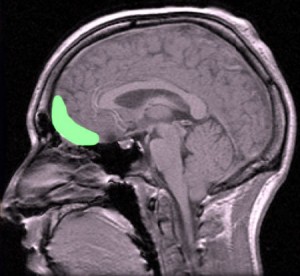
New brain scanning technologies are revealing that the part of the brain that processes physical pain also deals with emotional pain.
And in the same way that in some people injury can cause long-lasting chronic pain, science now reveals why some will never get over such heartbreak.
Emotional pain can take many forms; a relationship break-up or social exclusion, for example.
But it does not get any more extreme than losing a loved one, as Scottish broadcaster Mark Stephen did.
In July 1995 he was driving a tractor while hay-making and accidentally hit his young daughter. She died shortly afterwards.
Mark’s grief was overwhelming, he says. Read more…
Source: BBC;Â The Pain Of Emotion will be broadcast on Monday, 21 July, 2008 at 2100 BST on BBC Radio 4, and for seven days on BBC iPlayer.
Every aging baby boomer listens for the footsteps of Alzheimer’s, and for good reason: It’s estimated that 10 million American boomers will develop the disease. The need to develop preventative strategies, ideally long before Alzheimer’s destructive, clinical symptoms appear, is critical.
Â
In furthering the steps toward that goal, UCLA associate professor of neurology John Ringman and his colleagues confirm in the current issue of the journal Neurology that during Alzheimer’s earliest stages, levels of specific proteins in the blood and spinal fluid begin to drop as the disease progresses, making them potentially useful as biomarkers to identify and track progression long before symptoms appear. [continue reading…]

Yesterday I discovered MediaStorm ( hat tip to Mind Hacks). MediaStorm’s principal aim is to “usher in the next generation of multimedia storytelling by publishing social documentary projects incorporating photojournalism, interactivity, animation, audio and video for distribution across multiple media”. Today we feature a link to The Sandwich Generation, those caught between their aging parents and young children, includes some 20 million Americans.
In this emotionally charged account of family caregiving, filmmaker Julie Winokur and her husband, photojournalist Ed Kashi, expose their personal lives with unflinching candor. Winokur and Kashi uprooted their two children and their business in order to move 3,000 miles cross-country to care for Winokur’s father, Herbie.
At 83, Herbie suffers from dementia and can no longer live alone. Winokur and Kashi are faced with difficult choices and overwhelming responsibility as they charge head on through their Sandwich years. It is a story of love, family dynamics and the immeasurable sacrifice of those who are caught in the middle. Link to view
Source: MediaStorm

 Idle mind. Patients with obsessive-compulsive disorder and their relatives show reduced activity in the orbitofrontal cortex region (green) of the brain.
Image Credit:
Paul Wicks,
Kings College Â
Â
Link to Read More:Â ScienceNOW
By Steve Mitchell
ScienceNOW Daily News
17 July 2008
Cambridge researchers have discovered that measuring activity in a region of the brain could help to identify people at risk of developing obsessive compulsive disorder (OCD). As the current diagnosis of OCD is based on a clinical interview and often does not occur until the disorder has progressed, this could enable earlier more objective detection, and intervention. [continue reading…]



